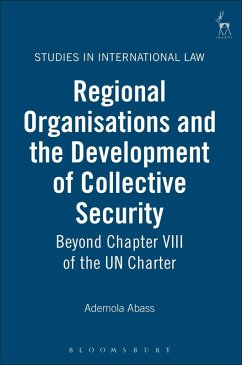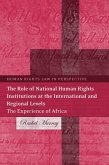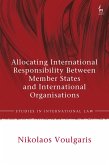This book examines the development of collective security by regional organisations particularly after the Cold War. It analyses the various constitutional developments that have occurred within regional arrangements such as ECOWAS, African Union, SADC, OAS, and NATO and critically analyses how these developments have propelled regional organisations to depart from the normative framework of regional arrangement contained in Chapter VIII of the UN Charter. Through a comprehensive examination of practice, the book evaluates the impact of regional organisations' newly asserted powers to authorise enforcement action and determine when situations within member states warrant their intervention. It inquires into the legal justifications for these developments both from within the UN Charter and regional treaties and practice and asks whether consensual intervention, that is the use of force by regional organisations on the basis of their members' consent, contravenes or constitutes an exception to the prohibition of the use or threat of force under Article 2(4) of the Charter. The book also analyses the regime of complementarity between the UN and regional organisations.









